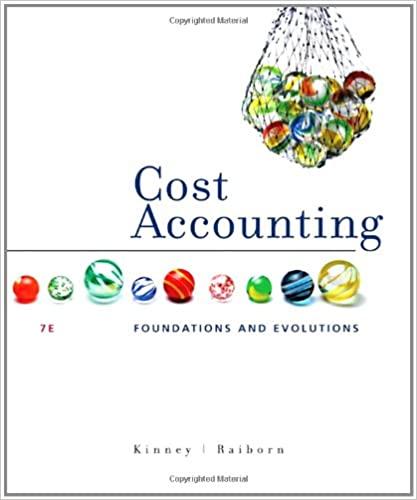Question
Here is the question we were given: Use Problems 10-15 and 10-16 ( GIVEN BELOW ) to prepare an activity statement (operating statement), a comparative
Here is the question we were given: Use Problems 10-15 and 10-16 (GIVEN BELOW) to prepare an activity statement (operating statement), a comparative statement of financial position (balance sheet), and a statement of cash flows (using the indirect method). What do you learn from these statements, and what questions do they raise?
Problem 10-15: The American Research Council for Humanities (ARCH) had the following financial events during the current year:
1. January 12. Received a $300,000 payment from a pledge made last year.
2. February 4. Placed an order for new cubicle partitions with 5-year useful lives, for $15,000. ARCH uses straight-line depreciation. Payment was not yet made, and the partitions have not yet been delivered.
3. March 1. Paid out a $50,000 grant to the Governmental Archaeological Research Committee for History (GARCH). This was a new grant made in the current fiscal year.
4. May 29. Paid a $5,000 deposit for the partitions ordered on February 4.
5. June 12. Collected $80,000 in new donations.
6. September 1. Bought $60,000 of books ARCH has sponsored in the past to sell in its online bookstore. It paid half now, and still owes the other half, to be paid at the end of the year. ARCH has budgeted to sell the books for $100,000 total.
7. October 15. The partitions ordered on February 4 arrived, and ARCH paid for the balance owed.
8. November 10. Borrowed $75,000 from its bank on a note payable.
9. December 5. Repaid $25,000 on the note payable and also $3,000 in interest expenses.
10. December 28. Paid its employees $75,000 of wages in cash for the year, $70,000 of which was for the current year and $5,000 of which was the outstanding balance owed. Employees earned $90,000 in wages for the year.
11. December 31. Book sales from the Internet bookstore totaled $110,000 and the cost of the books sold was $58,000. ARCH has not collected $12,000 of the sales. The balance owed for the inventory was paid.
12. ARCH expects that of the $12,000 not collected to date, it will collect $10,000.
13. December 31. Depreciation of ARCH's building for the year is $40,000.
Problem 10-16: ARCH began the year with the following balances in their accounts:
Accounts Payable: $27,000
Accounts Receivable, Net: $26,000
Cash: $10,000
Inventory: $25,000
Notes Payable: $270,000
Permanently Restricted Net Assets: $100,000
Pledges Receivable: $350,000
Property, Plant, and Equipment, Net: $350,000
Temporarily Restricted Net Assets: $30,000
Unrestricted Net Assets: $302,000
Wages Payable: $32,000
Step by Step Solution
There are 3 Steps involved in it
Step: 1

Get Instant Access to Expert-Tailored Solutions
See step-by-step solutions with expert insights and AI powered tools for academic success
Step: 2

Step: 3

Ace Your Homework with AI
Get the answers you need in no time with our AI-driven, step-by-step assistance
Get Started


